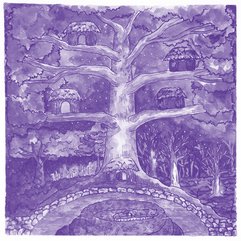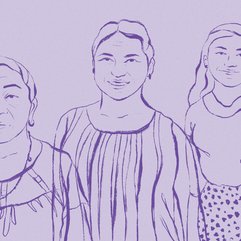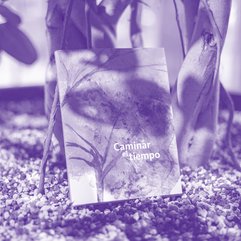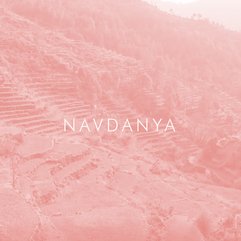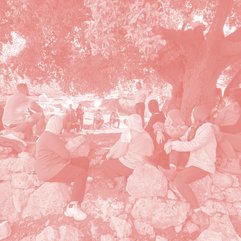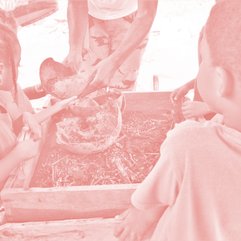GRAMMARS OF THE SOIL
Screening of excerpts from “A Mãe de Todas as Lutas” and roundtable conversation
19.30-21.30
Save the Date
all ages welcome
In Portuguese, with translation to English and whispered translation to German

This event is part of the Reimagining Ecological Landscapes - series.
We will start with excerpts from the film „A Mãe de Todas as Lutas” (The Mother of All Struggles), a narrative that weaves memory as a lens to envision futures of change from a female perspective. The film follows the trajectories of Shirley Krenak and Maria Zelzuita, two women at the forefront of land struggle in Brazil. Shirley embraces the mission of honoring the women and ancestral wisdom of the Krenak people from Minas Gerais, Brazil, while Maria Zelzuita, a survivor of the Eldorado dos Carajás Massacre in Pará, brings forth reflections on violence and the historical appropriation of the female body.

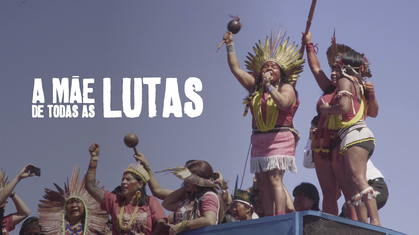 Poster of the film “A Mãe de Todas as Lutas”
Poster of the film “A Mãe de Todas as Lutas”
A Mãe de Todas as Lutas
directed by Susanna Lira (Brasilien 2022), Portuguese with English subtitles.
The screening will be followed by a roundtable discussion on the challenges of socio-ecological struggles, land, and enduring strategies of transformation with:
Juliana Robles de la Pava, postdoctoral researcher and art historian involved in the project Muddy Measures: When Wetlands and Heritage Converse, which engages with colonial histories of exploitation and extraction.
Danilo Chammas (Instituto Cordillheira), lawyer and legal representative of the family and victims of ecological disaster - AVABRUM.
Ronaldo Barros Sodré, Professor at the Department of Geoscience and Geography at the Federal University of Maranhão.
Constanze Lemmerich from maiz brasil will moderate the conversation.
Grammars of the Soil is a roundtable that brings together voices from law, art, and territory to explore how we might reimagine our relational frameworks with the earth. Taking as a starting point the ongoing ecological, economic and social crisis triggered by the collapse of Samarco Fundão tailings dam in Mariana, Minas Gerais, and the struggles of communities in Maranhão, whose lives continue to be affected by extractive industries and the lingering impacts of mining disasters and commodity production, the conversation reminds us that questions of transnational supply chain and corporate responsibility are inseparable from the broader struggle for environmental justice and the recognition of the earth as a living entity. The discussion will address the limits of industrial extractivism, possibilities of international law, activism and artistic practice as tools for raising consciousness and justice, and the necessity of developing different “grammars” of relation — to soil, nature and life.




